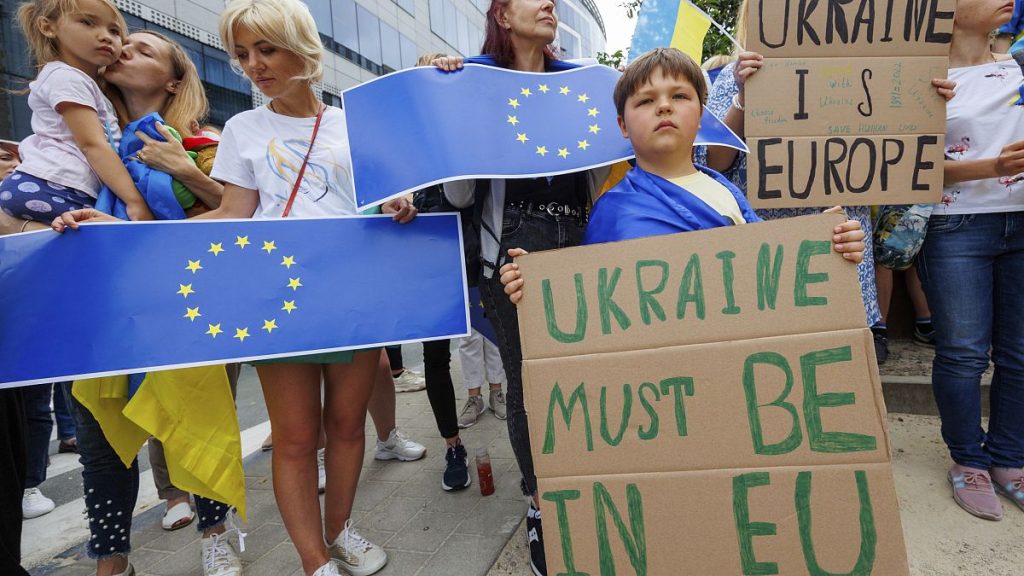The European Commission has sent draft frameworks for accession talks with Ukraine and Moldova to member states, a significant step towards EU membership for both countries. These frameworks will need the unanimous endorsement of all 27 EU leaders in order to proceed. Ukrainian President Volodymyr Zelenskyy expressed gratitude for the progress made, stating that Ukraine’s European choice is becoming a reality. Moldova has also made substantial progress in its EU accession reforms. However, Hungarian Prime Minister Viktor Orbán has been vocal in his opposition, questioning Ukraine’s readiness and criticizing its treatment of the Hungarian minority. Orbán has the power to veto the start of talks, as unanimity is required for approval.
Candidate countries must implement significant reforms in order to comply with EU laws before they can proceed with the accession process. Both Ukraine and Moldova have completed over 90% of these requirements, with Ukraine recently passing a lobbying bill aimed at curbing the influence of oligarchs. The war in Ukraine has injected urgency into the EU enlargement process, leading to a faster advancement of their membership bids. Russia’s invasion of Ukraine prompted both countries to apply for EU membership, leading to their candidate status just four months later. The speed at which their applications have been processed is unprecedented in EU history.
The war in Ukraine has created uncertainty regarding the feasibility of Ukraine’s accession to the EU. Despite this, the geopolitical imperative of delivering on promises to the region has led to renewed momentum in the accession bids of Western Balkan countries. Bosnia and Herzegovina recently received the Commission’s approval for accession talks, joining Albania, Montenegro, North Macedonia, and Serbia. Kosovo is currently considered a potential candidate for EU membership. The conflict in Ukraine has highlighted the importance ofEU enlargement as a means of promoting stability and security in the region.
The frameworks for accession talks with Ukraine and Moldova represent a significant milestone in their paths towards EU membership. The progress made by both countries in implementing necessary reforms has been noted by the EU, with Ukraine passing legislation aimed at addressing corruption and curbing the influence of oligarchs. The current war in Ukraine has added urgency to the EU enlargement process, leading to a faster advancement of their membership bids. However, opposition from Hungarian Prime Minister Viktor Orbán raises concerns about the potential for his veto in the approval process, as unanimity among EU leaders is required.
The EU’s decision to send draft frameworks for accession talks with Ukraine and Moldova marks a key step towards their potential membership. The speed at which their applications have been processed in light of the war in Ukraine is unprecedented in EU history, reflecting the urgency of addressing security and stability in the region. The renewed momentum in the accession bids of Western Balkan countries further underscores the geopolitical imperative of EU enlargement. However, questions remain regarding the feasibility of Ukraine’s accession while the conflict is ongoing, highlighting the complexities and challenges faced by candidate countries in their paths towards EU membership.
Overall, the progress made by Ukraine and Moldova in implementing necessary reforms and advancing their EU membership bids is significant. The war in Ukraine has added urgency to the EU enlargement process, prompting a faster advancement of their applications. The geopolitical imperative of promoting stability and security in the region has led to renewed momentum in the accession bids of other Western Balkan countries. Despite challenges and uncertainties, the draft frameworks for accession talks with Ukraine and Moldova represent a positive step towards their potential EU membership, highlighting the ongoing evolution of the European integration process.


